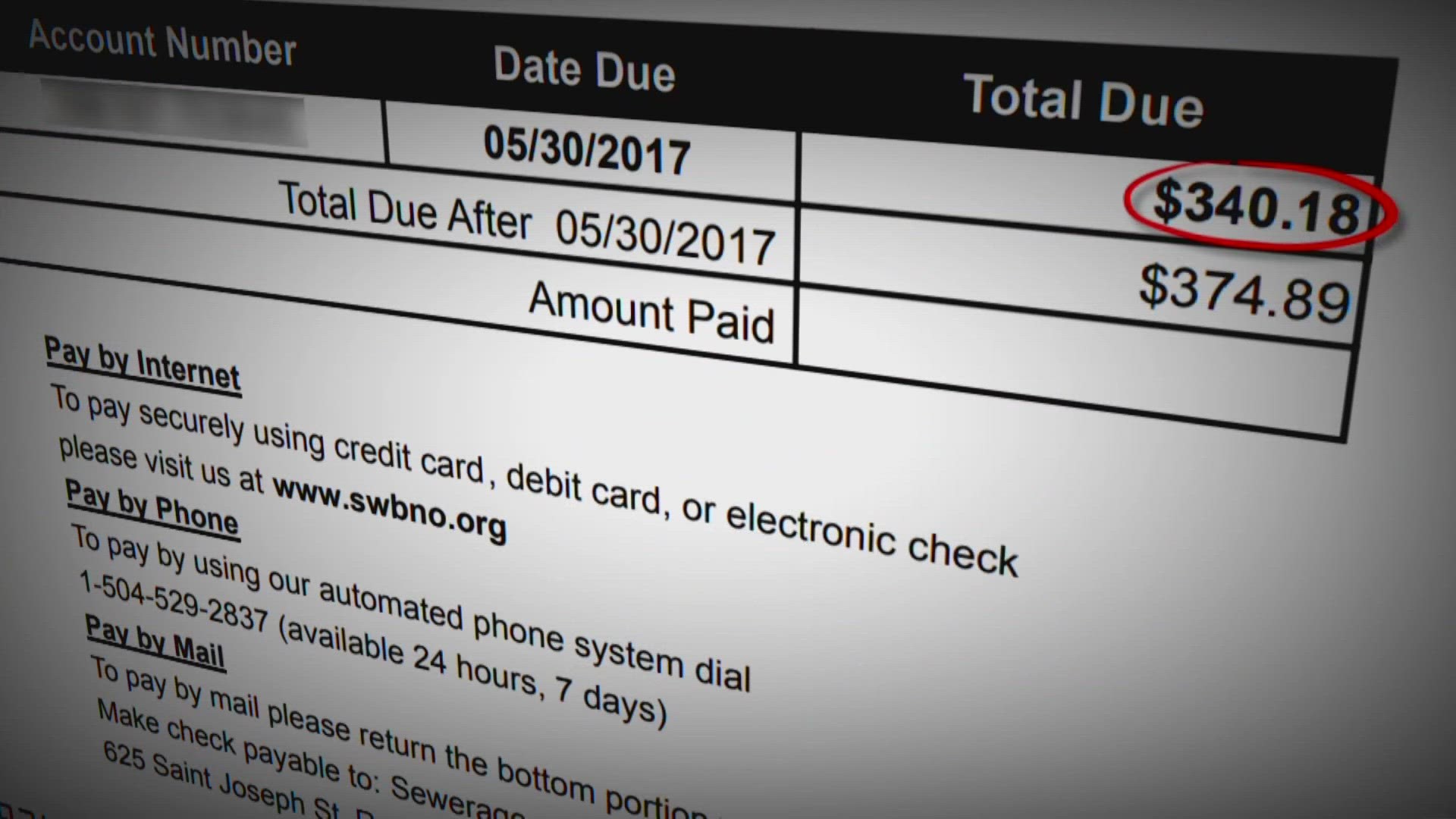NEW ORLEANS — While billing problems and delinquent accounts have plagued thousands of New Orleans Sewerage & Water Board customers, some employees at the utility have found ways to manipulate the system to avoid “shutoffs” over delinquent bills and, in at least one case, lower their bills.
Those are the findings of an Inspector General letter sent to the agency Tuesday, including one instance in which an employee was fired after she was caught lowering bills for herself, her husband and her mother.
In at least four other instances, employees used a loophole to “play the system by getting on and off payment plans,” the five-page letter states.
Payment plans are available to customers who are having trouble paying off their delinquent bills, but the plan comes with penalties – including water shut-offs – for people who don’t stick to the agreement. The IG investigation uncovered that customers can avoid the shut-off list by jumping on and off the payment plan.
“The S&WB should establish a limit on the number of times S&WB customers, including S&WB employees, can enter and exit the payment plans without fully paying the outstanding balance of a delinquent account,” states the letter signed by Inspector General Ed Michel.
The IG’s office states that during the course of their investigation, instigated by an anonymous tip, the S&WB implemented proactive measures to avoid employee billing issues.
In July 2023, the utility issued a “Family and Co-Worker Account Handling” policy that adds strict oversight for employees who may come across the accounts of family members or co-workers. The safeguards include extra documentation of billing transactions and review by a supervisor.
In another reform move, the agency recently hired an outside company to handle delinquent accounts. In the program launched last month, PromisePay allows customers with an unpaid bill over $50 to enter into an interest-free payment plan.
“Customers who enroll in a payment plan for their outstanding balance will be protected from negative consequences, such as penalties, fees, and water service disconnections as long as they stay up to date on their PromisePay plan and current bills,” the S&WB stated upon announcing the new program.
In response to the IG’s letter, a S&WB spokesperson wrote, “We appreciate and acknowledge the OIG’s findings that some customers may learn to ‘play the system,’ entering and re-entering payment plants to avoid water shutoffs and ultimately avoid paying the full balance of their bills.”
The agency reported that since farming out delinquent bill collections, “more than $832,000 was collected with over $10 million scheduled to be paid. Since implementing PromisePay on February 8, we have seen a 98% retention rate in customers staying on the payment plans.”
City Councilman Eugene Green gave credit to the IG’s office for pointing out “serious problems” and also applauded the S&WB for taking corrective action.
“It is most important that ratepayers and our residents in general feel that corrective and progressive activity is taking place to address the deficiencies in the Sewerage and Water Board billing and collection process,” Green wrote in a statement.
Another upgrade that is expected to correct the persistent problem of erroneous bills is a switch to automated household water meters. The S&WB says cutting-edge “Smart Meters” should correct mistakes, but the project is not scheduled for completion until 2026.
The IG’s findings and measures by the utility to shore up its longstanding billing problems come at a critical time for the agency. A recently assembled governor’s Taskforce is finalizing recommendations, including potentially sweeping changes in billing practices and appeals of erroneous bills.
The task force is also expected to issue recommendations regarding the make-up of the 14-member board that governs the agency as well as new ideas for maintaining its aging and failing drainage infrastructure.
Read the full public letter from the Inspector General to S&WB below:

